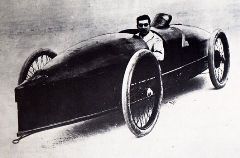 A team of engineers in America is seeking to transform a railway engine from 1937 into a test bed for the world’s first modern steam locomotive run on biofuel.
A team of engineers in America is seeking to transform a railway engine from 1937 into a test bed for the world’s first modern steam locomotive run on biofuel.
The Coalition for Sustainable Rail (CSR) hopes to build a steam engine that will generate thousands of horsepower with the smallest carbon footprint of any non-electrified higher-speed locomotive in the world.
The locomotive will be powered by a biocoal developed by the University of Minnesota’s Natural Resources Research Institute Imagine a fuel. Although more expensive than conventional coal, the biocoal does not have the associated carbon footprint, heavy metal or sulphur content and is cheaper than the diesel fuel that currently powers all diesel-electric fleet.
In order to prove the viability of biocoal and modern steam technology, CSR plans to test the locomotive at speeds in excess of 130 miles per hour, a performance superior to any existing diesel-electric on the market and enough to break the world steam speed record.
Steam: Power of the future?
 Steam tends to be associated with rail travel, but in the early days of motoring history, cars were fuelled by petrol, diesel or steam engines. Just as in the much larger railway locomotives, steam-powered cars worked by a fuel – any fuel – being used to heat water, which in turn powered pistons. The main advantages were that the engine produced a generous amount of power and a wide range of fuel could be used. The disadvantage was it took a while “to raise steam”. The steam engine was an external combustion engine whereas petrol was ignited in the piston itself – an internal combustion engine.
Steam tends to be associated with rail travel, but in the early days of motoring history, cars were fuelled by petrol, diesel or steam engines. Just as in the much larger railway locomotives, steam-powered cars worked by a fuel – any fuel – being used to heat water, which in turn powered pistons. The main advantages were that the engine produced a generous amount of power and a wide range of fuel could be used. The disadvantage was it took a while “to raise steam”. The steam engine was an external combustion engine whereas petrol was ignited in the piston itself – an internal combustion engine.
The petrol engine was weaker so a gear box was used. A starter handle was required to set the petrol engine going. The boost for the petrol engine began when Bendix invented the starter motor. This meant that petrol cars could be started immediately while steam cars could not; a while later the flash boiler was invented whereby steam could be raised almost instantly but it was too late – cars now ran on petrol.
0 Comments View now